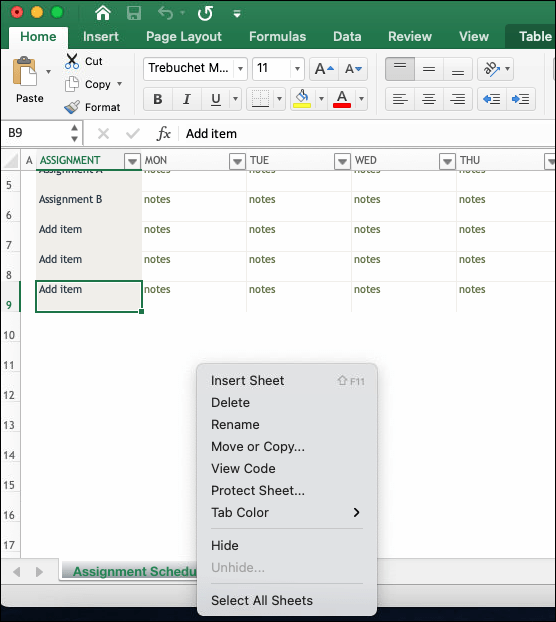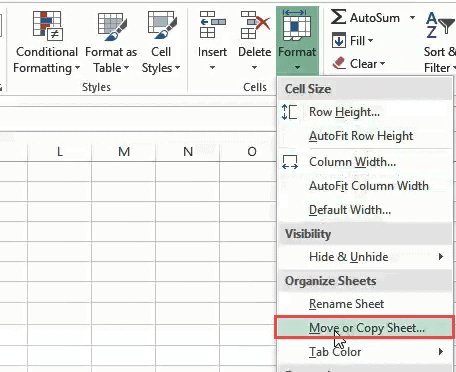5 Ways to Duplicate Sheets in Excel Quickly

Handling large datasets in Microsoft Excel often requires you to replicate sheets for various purposes such as data backup, creating templates, or comparing data sets. Here, we'll explore five effective ways to duplicate sheets in Excel, each designed for different scenarios and user needs. From basic copying to advanced techniques, these methods will help streamline your Excel workflow.
Method 1: Using Keyboard Shortcuts

Keyboard shortcuts provide a quick and efficient way to duplicate sheets in Excel. This method is particularly handy when you’re working with a limited number of sheets and need to make duplicates swiftly.
- Select the sheet you want to copy.
- Press Ctrl + Shift keys, then drag the sheet tab to the desired location.
- Release the mouse to drop the duplicate sheet.
🔍 Note: This method creates an exact copy of your selected sheet, including formulas and formatting.
Method 2: Context Menu Option

The context menu in Excel provides an intuitive way to duplicate sheets without navigating through menus:
- Right-click the tab of the sheet you wish to duplicate.
- From the context menu, select “Move or Copy…”.
- In the dialog box, check the Create a copy checkbox.
- Choose where you want to place the duplicate sheet and click “OK”.
💡 Note: Remember to check “Create a copy” to avoid moving the original sheet inadvertently.
Method 3: Utilizing Excel Ribbon

For users who prefer using the Excel ribbon, there’s a straightforward way to duplicate sheets:
- Click on the tab of the sheet you want to copy.
- Go to the “Home” tab on the Ribbon.
- Click “Format” in the “Cells” group, then hover over “Organize Sheets” and choose “Copy Sheet”.
- In the “Move or Copy” dialog, select “Create a copy” and choose where to insert the new sheet.
Method 4: VBA Macro for Bulk Duplication

If you need to duplicate multiple sheets or perform this task frequently, a VBA (Visual Basic for Applications) macro can be extremely useful. Here’s how to set up a macro for bulk duplication:
- Open the Visual Basic Editor by pressing Alt + F11.
- Insert a new module (Insert > Module).
- Paste the following code to create a macro named DuplicateSheets:
Sub DuplicateSheets() Dim ws As Worksheet Dim i As IntegerFor Each ws In ThisWorkbook.Worksheets If ws.Name <> "Sheet1" Then 'Exclude the sheet you do not want to duplicate ws.Copy After:=ThisWorkbook.Sheets(ThisWorkbook.Sheets.Count) i = i + 1 End If Next ws
End Sub
🔧 Note: You can exclude specific sheets by changing the condition in the If statement or adjust the script for your needs.
Method 5: External Tool or Add-In

Sometimes, the need for advanced functionality or automation leads users to external tools or Excel add-ins. Here are some examples:
| Tool/Add-In | Functionality | Use Case |
|---|---|---|
| Excel Power Tools | Allows bulk duplication, sheet merging, etc. | Large projects requiring regular duplication |
| ASAP Utilities | Enhances Excel with over 300 tools including sheet management | Advanced users needing extensive Excel features |
| VBA Scripts | Custom scripts for specific tasks | Tailored solutions for personal or organizational needs |

Each method discussed offers unique advantages suited for different scenarios, whether it's for quick duplication, bulk operations, or using advanced tools. Understanding these techniques enhances your productivity by allowing you to manage Excel sheets efficiently, ensuring your data analysis tasks are performed seamlessly.
What is the difference between moving and copying a sheet in Excel?

+
Moving a sheet relocates it within the workbook, while copying creates a duplicate, leaving the original in place.
Can I use these methods to duplicate sheets between different Excel workbooks?

+
Yes, with the context menu or VBA, you can specify where to copy the sheet, including to another workbook.
Are there any limitations to how many sheets can be duplicated in one go?

+
Excel has a limitation on the number of sheets per workbook, but for most users, this will not be an issue. VBA macros can copy many sheets at once within this constraint.
In conclusion, knowing these various methods for duplicating sheets in Excel empowers you to manage your data with greater flexibility and speed. Each approach serves different purposes, from immediate, one-off tasks to bulk operations, ensuring your workflow is both efficient and tailored to your specific needs. The choice between these methods depends on your current project’s complexity, your level of comfort with VBA, and your specific requirements for sheet management in Excel.



